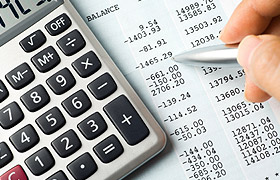
.100 The licensee is required to preserve the records upon which the quarterly tax return or annual tax return is based for four years from the tax return due date or filing date, whichever is later, plus any time period included as a result of waivers or jeopardy assessments.
.200 Failure to provide records demanded for audit purposes extends the four year record retention requirement until the records are provided.
.300 Records may be kept on microfilm, microfiche, or other computerized or condensed record storage system acceptable to the base jurisdiction.
.100 Records shall be made available upon request by any member jurisdiction and shall be available for audit during normal business hours.
.200 If records to be audited are located outside of the base jurisdiction, and the base jurisdiction must send auditors to the place records are kept, the licensee may be required to reimburse the base jurisdiction for reasonable per diem and travel expenses of its auditors as authorized by law.
.200 An acceptable distance accounting system is necessary to substantiate the information reported on the tax return filed quarterly or annually. A licensee's system at a minimum, must include distance data on each individual vehicle for each trip and be recapitulated in monthly fleet summaries. Supporting information should include:
.005 Date of trip (starting and ending);
.010 Trip origin and destination;
.015 Route of travel (may be waived by base jurisdiction);
.020 Beginning and ending odometer or hubodometer reading of the trip (may be waived by base jurisdiction);
.025 Total trip miles/kilometers;
.030 Miles/kilometers by jurisdiction;
.035 Unit number or vehicle identification number;
.040 Vehicle fleet number;
.045 Registrant's name; and
.050 may include additional information at the discretion of the base
.100 The licensee must maintain complete records of all motor fuel purchased, received, and used in the conduct of its business.
.200 Separate totals must be compiled for each motor fuel type.
.300 Retail fuel purchases and bulk fuel purchases are to be accounted for separately.
The fuel records shall contain, but not be limited to:
.005 The date of each receipt of fuel;
.010 The name and address of the person from whom purchased or received;
.015 The number of gallons or liters received;
.020 The type of fuel; and
.025 The vehicle or equipment into which the fuel was placed.
.100 Retail purchases must be supported by a receipt or invoice, credit card receipt, automated vendor generated invoice or transaction listing, or microfilm/microfiche of the receipt or invoice. Receipts that have been altered or indicate erasures are not accepted for tax-paid credits unless the licensee can demonstrate the receipt is valid.
.200 Receipts for retail fuel purchases must identify the vehicle by the plate or unit number or other licensee identifier, as distance traveled and fuel consumption may be reported only for vehicles identified as part of the licensee's operation.
.300 An acceptable receipt or invoice must include, but shall not be limited to, then following:
.005 Date of purchase;
.010 Seller's name and address;
.015 Number of gallons or liters purchased;
.020 Fuel type;
.025 Price
.025 Price per gallon or liter or total amount of sale;
.030 Unit numbers; and
.035 Purchaser's name (See R1010.300 of the IFTA Articles of Agreement).